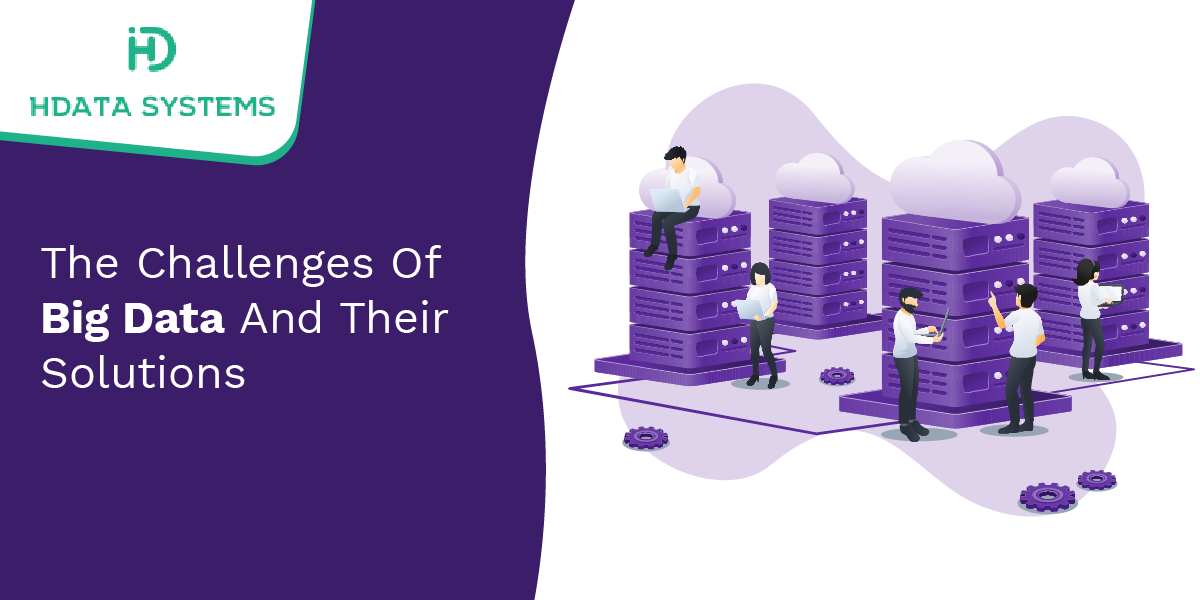Every general must scrutinize their opponents before going into battle: how big is their army and what weapons does it have, how many battles have they fought and what tactics have been used? This knowledge enables the general to develop the right strategy and be ready to fight.
Similarly, every decision maker needs to know what they're dealing with before starting big data. In this blog post we cover big challenges of big data and offer their solutions.
1. Little data is poorly understood and accepted
Companies often do not even know the basics: what big data actually is, what advantages it brings, what infrastructure is needed, etc. Without a clear understanding, a big data project is doomed to fail. Companies can waste a lot of time and resources on things they can't do with.
And if employees do not understand the advantages of big data and do not want to change the existing processes, they can offer resistance and hinder the company's progress.
Solution:
Big data brings about big changes in every company. Therefore, this should be accepted first by top management and then from top to bottom. To ensure understanding and acceptance of big data at all levels, IT departments have to organize numerous training courses and workshops.
To increase the acceptance of big data, the implementation and use of the new big data solution must be monitored and controlled. However, top management should not exaggerate with control, as this can have a negative impact.
2. Confusing variety of big data technologies
It's easy to get lost in the variety of big data technologies available on the market today. Do you need Spark or would Hadoop MapReduce be fast enough? Finding answers to these questions can be difficult. And it is even easier to make a bad choice if you explore the ocean of technological possibilities without a clear view of what you actually need.
Solution:
If you are new to the world of big data and are looking for professional help - then you are on the right track. You can hire an expert or contact a
data science company. In both cases, you can work together to develop a strategy and use it to select the technology stack you need.
3. It costs a lot of money
Big data projects involve high costs. If you choose an on-premises solution, you need to pay attention to the costs of new hardware, new employees (administrators and developers), electricity, and so on. Even more: Although the frameworks you need can be open source, you still have to pay to develop, set up, configure, and maintain new software.
If you decide to use a cloud-based Big Data solution, you still need employees to adjust (as above) and cloud services, the development of Big Data solutions, and the establishment and maintenance of the necessary frameworks to pay.In addition, in both cases, you need to consider future enhancements to prevent big data growth from getting out of hand and costing you a fortune.
Solution:
How exactly your company's wallet is saved depends on the specific technological needs of your company and your business goals. For example, companies that want flexibility benefit from the cloud, while companies with extremely high security requirements choose an on-premises solution.
There are also hybrid solutions when data is stored and processed in both the cloud and on-premises, which can also be cost-effective. And using data lakes or optimizing algorithms (if done right) can also save money:
• Data lakes offer cheap storage options for data that do not need to be analyzed at the moment.
• Optimizations of algorithms can in turn reduce the power consumption of the computer by 5 to 100 times. Or even more.
In short: the key to solving this challenge is to properly analyze your needs and choose an appropriate approach.
4. Managing data quality is too complicated
Sooner or later, you will encounter the problem of data integration because the data to be analyzed comes from different sources in a variety of different formats. For example, e-commerce companies need to analyze data from website logs, call centers, competitor websites, and social media. The data formats are obviously different, and matching them can be problematic.
Solution:
• There are a number of technologies to clean up data. But first things first. Your big data must have a correct model. You can only continue trading after you have created this model.
• Compare data with the only source of truth (for example, compare variants of addresses with their spellings in the postal database).
• Reconciliate and merge records if they relate to the same entity.
Please note, however, that big data is never 100 percent accurate. You need to know and face this challenge, and the Big Data Quality article can help you do that.
Harnil Oza is a CEO of HData Systems - Data Science Company & Hyperlink InfoSystem a top mobile app development company in Canada, USA, UK, and India having a team of best app developers who deliver best mobile solutions mainly on Android and iOS platform and also listed as one of the top app development companies by leading research platform.


